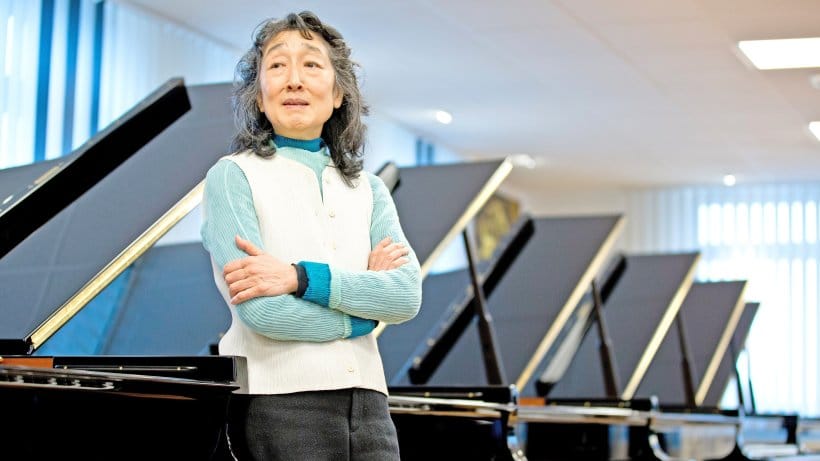Mitsuko shares her Marlboro
mainMitsuko Uchida has agreed to share her artistic directorship directorship of Marlboro Music with the US pianist Jonathan Biss, it was announced today.
Christopher Serkin, Chair and President of Marlboro Music and grandson of Marlboro’s founder said, ‘Jonathan’s appointment as co-artistic director marks the next important evolution at Marlboro. He has the musical integrity that is the hallmark of our community, a 20-year history of participation at Marlboro to maintain a sense of continuity, and the vision to help guide the next generations of great musicians.’






Sounds promising.
This Sunday’s final concert ends with Beethoven’s Choral Fantasy, a Marlboro traidion. Uchida will be the piano soloist. The conductor will be a venerable Marlboro veteran: Leon Fleisher.
Mr. Lebrecht, you wrote about Marlboro in “Who killed classical music”, but seldom mention it in this space. It deserves more attention. Marlboro Music is all about music and education. No glamor, but if one looks back in the past, and one easily spots many young musicians went on to fame.
+1
+1
Marlboro is all about cliques, favoritism and exclusivity. Which is a shame as it is one of the few keys to open the door to a career in chamber music. They should have fair and open auditions every year like other festivals. But even some Curtis Institute insiders are unable to get in. It’s very mysterious.
Jonathan Biss seems very impressive, but I hear mixed things about him.
Cliques and favoritism are one thing. Exclusivity is something else entirely. Nothing wrong with exclusivity. It may be the only way to preserve what little is worth preserving in the classical music biz. In the chamber music biz, in Marlboro’s case.
Without being an insider, I can’t speak of the admissions process, but the end result is might impressive. I judge from several seasons I have attended. The performances are mostly of the highest level.
Also, Marlboro Music is not a festival. It is first and foremost a music school. A workshop where young musicians and mentors make music together. The concerts are the tip of the iceberg. They announce the programs a week ahead, when they determine what is worth performing. The public programs are the tip of the iceberg.
Many other works are studied and never performed.
It seems odd to me that Marlboro – an institution devoted to chamber music – would be directed by pianists. The heart of chamber music is in the literature for strings – quartets above all – and a violinist, violist, or cellist surely has more investment in this repertoire than a pianist like Uchida, who has a vast solo repertoire to play.
I’d be curious to hear anyone’s thoughts on this.
Pianists tend to have a larger chamber repertoire that has includes large segments of the string chamber repertoire (piano quartets, Piano quintets (with string quartet), in addition to the wind repertoire (poulenc sextet) on top of the mixed chamber repertoire for piano, strings winds and percussion.
Also considering that Marlboro was founded by the pianist Rudolf Serkin in the 1950s, it may be the festival’s way of acknowledging its history?
Serkin was one of six founders, the others being string players (Adolf and Hermann Busch) and flutists, plus one conductor (Marcel, Louis and Blanche Mouse). That was in 1951. Serkin took over as director in 1952, after Adolf Busch’s death.
https://www.marlboromusic.org/about/history/
You forgot Mickey.
And am I mistaken in thinking that Richard Goode was a co-director of Marlboro with Uchida?
Indeed, Goode and Uchida were co-directors for quite a few years, though I cannot presently trace the exact dates. But boy do I have fond memories of both participating in chamber music concerts.
From a strictly musical point of view, I think that you are making good sense. But what is best for Marlboro can be discussed only among people who know how the system works.
+1
Have any of you – under alias or not! – actually ever participated in the festival?